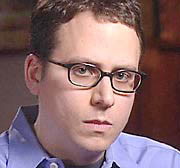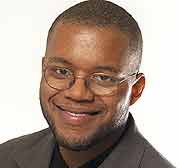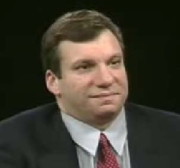![]()
![]()
Background
In an article in the Washington Post on August 24, 2009, John Feinstein wrote about new Kentucky coach John Calipari and issues concerning his former player Derrick Rose at Memphis. Feinstein started to talk about the NCAA and their inconsistent investigative techniques (which I agree with in general). Feinstein, however, chose to add the following:
"It is always worth remembering Jerry Tarkanian's famous description of NCAA justice. Upon learning that $10,000 had fallen out of an envelope headed to a Kentucky recruit's father, Tark said: 'The NCAA is so mad at Kentucky it is going to put Cleveland State on probation.'"
As a Kentucky fan who long ago recognized (and demonstrated) the fact that John Feinstein is pathologically and irrationally critical of the University of Kentucky basketball team and players, it came as no surprise to me to see him dredge up this quote, even if the point was off-target and inaccurate.
I say off-target because the fact is that despite what Feinstein implies, the NCAA DID indeed investigate and sanctioned Kentucky over the Chris Mills incident. If Feinstein was truly intent on looking for examples of the NCAA choosing to overlook obvious violations in order to protect their sacred cows, he need look no further than his own alma mater, Duke, which featured Corey Maggette on their 1999 Final Four team. This was the same Corey Maggette who had earlier forfeited his amateur status by accepting money from a unscrupulous agent by the name of Myron Piggie. In similar cases, the NCAA had regularly stripped teams of tournament records and revenues over such findings, but chose to do nothing with respect to Duke. Yet Feinstein chose to avoid this more recent and more appropriate example of the NCAA choosing to look the other way.*
I also say inaccurate because as is customary with many of Feinstein's writings, he gets the facts incorrect. The $10,000 that Feinstein claimed was in actuality $1,000, nor did it 'fall out' of an envelope as he and many other people erroneously believe. Rather, according to testimony an employee found the envelope with an open flap and upon inspection discovered cash inside.
In most cases and with most anyone else, such a factual error can be considered a honest mistake, albeit one that comes from sloppy work. But in the case of John Feinstein, this particular mistake is taken to an entirely new level, since not only has he erroneously repeated this mistake numerous times over at least a decade. (This is a pattern of Feinstein to recycle his garbage year after year.) He's also been made aware of this particular mistake repeatedly, so he really has no excuse.
As recently as 2008, Feinstein had made practically the same inaccurate claim he's always made when he wrote "The best description of NCAA justice came from, of all people, Jerry Tarkanian, who seemed to be battling the NCAA throughout his coaching career. When $10,000 fell out of the air-express envelope sent from the Kentucky basketball office to Kentucky recruit's father in 1989, Tark shook his head sagely and said, "The NCAA is so mad at Kentucky, it's going to put Cleveland State on probation for another two years." ("Stalling Game Helps Indiana -- and the NCAA," Washington Post, February 17, 2008.)
At the time I decided to take advantage of the fact that the Washington Post is one of the few papers left to still employ an ombudsman (Deborah Howell) and I contacted her over this mistake. Unfortunately she never replied back and the paper never corrected its mistake.
When Feinstein repeated his lies yet again in 2009, I figured it was worthwhile to follow up on my still relatively fresh message from the year previous, given that the paper not only failed to clean up Feinstein's mess, as was their duty, but through their negligence they allowed him to piss all over their paper once again.
This time I did receive action, although (as I later learned) the ombudsman had changed hands from Howell (recently deceased in a freak accident) to Andy Alexander.
JPS Note: Interestingly, it was noted with my discussion with the Post managment that they stressed that Feinstein wasn't a member of the actual Sports staff for the paper, instead he was employed on a contract basis for his retreads. I suppose this was an attempted explanation for why his glaring errors regularly make their way into the Washington Post, but it doesn't in my mind absolve them of responsibility in any way.)
To their credit, the Post did come through in a professional manner and made the correction, which really is the least any newspaper of any stature and any size should do as a matter of course when confronted with obvious factual inaccuracies.
Not surprisingly Feinstein didn't simply admit and own up to his mistake; instead he chose to complain about it on his blog (repeating yet another of his mistakes that money fell out of the envelope, which didn't happen) and used the opportunity to make a personal attack against me. In his blog entry on August 28, 2009 Feinstein wrote the following:
|
One other Kentucky note I've been meaning to get to all week: In writing my Washington Post column earlier this week I repeated a mistake I've made for years. I always thought it was $10,000 that fell out of the envelope en route to Chris Mills' father. It was actually $1,000. I apologize for the mistake I wish it was my first, I'm pretty sure it won't be my last. I will say this though: it seems to me that sending that kind of money is even STUPIDER than sending 10 grand. If you're trying to buy a player, BUY him for crying out loud. There's a guy who runs a website listing the all-time enemies list for Kentucky basketball. (Talk about needing a life). I'm proud to report I've been number one on that list for many years ahead of such villains as Sports Illustrated, Billy Packer and Bob Knight. He was absolutely right to complain about me getting the dollar figure wrong. I'd also say he's sort of missing the forest for the trees but that's another story for another day. |
![]()
The Response
In Feinstein's attempt to sling more mud on Kentucky, he actually stumbled across a valid point. That is, if UK was intent on buying a player like Chris Mills, why would they send $1,000 and not something more substantial? Of course Feinstein doesn't follow that question with a logical follow-up, which is maybe the NCAA's version of events don't make a whole lot of sense, whether taken as a whole or when looking at the details.
I've said as much when I reviewed the book Raw Recruits, which covered the Mills scandal in detail, the factual evidence, chain of events and strange behavior by some of the Emery employees frankly left more questions than answers as to where exactly the source of the money came from and what were the motivations behind the people involved.
Unlike Feinstein (who not only accepts the NCAA's version of events at face value, regardless of how illogical their findings were; but for good measure regularly exaggerates the amount and method of discovery of the money.), I don't claim to know the complete truth behind who was responsible for the money and how the chain of events played out that day in Los Angeles.
But I do know enough to question a story that is full of holes (both in terms of evidence and logic), and to question an investigation which also failed to adequately follow-up on leads which indicated possible wrongdoing by other parties (in particular those associated with UCLA) which just so would have happened to exonerate UK. In fact, Feinstein's point about the amount being $1000 makes more sense if it came from another source, such as if it was seed money from a UCLA frame-job, or if it was pocket money from a rogue UK booster who put the money in the envelope while it was sitting on a desk in the UK offices (two theories which have been put forth as potential sources but were largely ignored by NCAA investigators).
The one thing I do know is that when push came to shove where the parties would be forced to testify in an actual court of law (and not the N.C.A.A.'s secretive kangaroo court version), that Emery chose to pay UK assistant coach Dwane Casey a multi-million dollar settlement just to keep the case from going to trial and the details from becoming public knowledge. The end result being that Emery chose to pay millions of dollars rather than to reveal or admit to the numerous mistakes and violations of privacy they made, including extremely odd behavior by some of their own employees that day with respect to this particular package.
Let me repeat that. A company that (if you believe the NCAA and Feinstein's version of events) is perfectly innocent, CHOSE to pay MILLIONS of dollars rather than make details of the event become public. And Feinstein feels it warranted to criticize me for questioning what really happened?
As far as Feinstein's personal attacks against me, I'm frankly still waiting for him to respond to my original open response the last time he pulled this type of stunt over 10 years ago. This when he wrote a lame article [linked at the following (1) (2) (3)] complaining that I had pointed out his numerous lies and errors about UK on the following webpage.
In particular I've been waiting for Feinstein to provide even one example of supposed inaccuracy with what I've written about him (as he claimed but failed to provide any examples), or one explanation for why what he's written and said to date isn't unprofessional and sloppy. Yet in over 10 years since Feinstein's been aware of the webpage, he's not only failed to try to explain these failings of his, but he's consistently continued to lie and make additional bogus and one-sided claims about UK, further sullying his credentials as a supposed journalist.
 |  |  |  |
| Four supposed 'journalists' among many who have been caught deep in repeated lies and unprofessional behavior. Poster children of the decline of journalism in America in modern times where substance, facts and basic journalism skills takes a back seat to sensationalism, unprofessional conduct and blithe arrogance toward the general public. | |||
Unfortunately, this arrogant attitude by Feinstein is not isolated. It's become pervasive throughout the news industry and has in my opinion, helped to undermine the trust with the general public and helped to accelerate the eventual demise of what was once a great American institution.
To make matters worse, the very people who are normally relied on for keeping institutions in check in terms of honesty and public integrity are the media, yet they consistently fail to hold their own colleagues accountable for the accuracy of what they write and say. And Sports seems to attract the worst of the worst, with very little actual integrity or real talent among its dwindling numbers. (In fact the whole industry seems to be going the other way as they seem to be working under the misguided belief that MORE sensationalism and MORE ridiculous opinions drive readership, rather than old fashioned solid reporting based on facts.) Nor, apparently, do the editors actually fact check work much anymore or uphold any type of standard for their writers, and even more rarely own up to mistakes, even obvious ones. All this and they wonder why no one respects the media anymore? They don't respect themselves or their own profession, why should anyone else?
Maybe if the media as a whole did a credible job policing itself, then I wouldn't have seen the need nearly two decades ago to expose what is in truth, an extremely unprofessional, sloppy and lazy writer who frankly no distinguished institution should have ever associated themselves with in the first place. And rather than whine about his repeated lies being exposed and make personal attacks on me for doing so, maybe Feinstein will actually make an honest attempt for once to clean up his tired act? But no, that's not Feinstein's style. Instead I'm sure I'll see additional personal attacks from him down the road, as he's already promised above.
![]()
* Postscript: Also note that people will correctly point out that Duke had no knowledge at the time of Maggette's involvement with agents, however lack of such knowledge has not prevented the NCAA from imposing penalties in the past for other programs. Neither did it prevent the NCAA from reversing themselves on the precedent they set for Duke, when they later chose to strip Memphis of their Final Four appearance in 2008. This despite the fact that in the Corey Maggette case, it was proven in Federal Court that Maggette accepted improper funds which made him ineligible as an amateur. In the Derrick Rose case at Memphis, neither the NCAA nor the Educations Testing Service proved that Rose cheated on his SAT test as they claimed.
![]()
Written by
Return to Kentucky Wildcat Basketball Page.